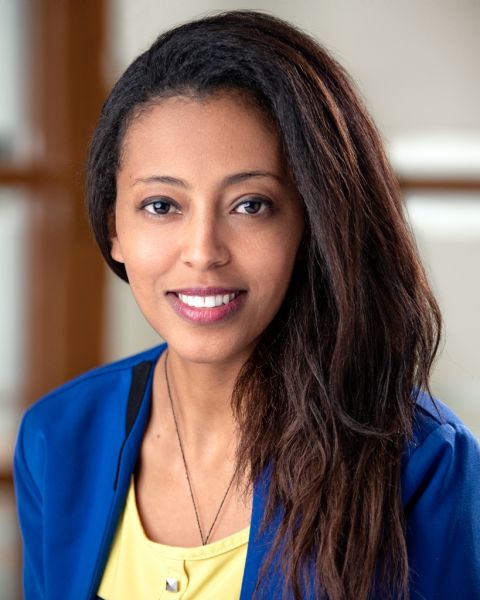
Ethiopia native Hiwot Mekuanent will be applying her doctoral work at Queen’s Law to help improve the lives of people with disabilities in her homeland. Admitted into the school’s PhD program as an “exceptional faculty leader” from the University of Gondar in Ethiopia, she has received a MasterCard Foundation at Queen’s University Scholarship to complete her studies.
With an LLM in human rights law from Addis Ababa University, she also has over six years of experience in the area. She is a lecturer and the Director for Disability Studies and Service Directorate at the University of Gondar, where she focuses on creating conducive learning and working environments for students and employees with disabilities.
Hiwot Mekuanent spoke to Queen’s Law Reports about the focus of her dissertation, how she became and expert in the area, and her plans for the future.
Tell us about your research.
My research focuses on the issues that people with disabilities and their families face in Ethiopia. My dissertation critically examines Ethiopia’s institutional and legal framework that governs the rights of persons with disabilities. Specifically, I explore why Ethiopia still has discriminatory laws and institutional frameworks while committed to both domestic and international human rights instruments that guarantee equality for persons with disabilities. For example, the Ethiopian Custom Authority enacted a directive that allows persons with disabilities to import a personal-use car duty free. While this provision may seem progressive, it only benefits persons with disabilities who appear at the Social Affairs Office in person and claim their rights. So in practice, it discriminates between persons with different types of disability.
What led you to the area of human rights law, and more specifically to disability rights law?
My brother has an intellectual disability and I’ve seen him face a number of challenges throughout his life. This has made me passionate about dedicating my education and career to breaking down barriers for persons with disabilities. I started with my undergraduate thesis that explored the “Rights of Persons with Disabilities under Ethiopian Legal System.” I built on this knowledge in my master’s degree in human rights law obtained from Addis Ababa University, where I wrote my thesis on the “Right to Education of Children With Intellectual Disability and its Implementation in Addis Ababa, Ethiopia.” Particularly, my master’s degree allowed me to see the different concepts and issues of disability from a human rights perspective. I started to think about the international instruments and guarantees that protect the rights of persons with disabilities. Moreover, my experience serving as the Director of the Disability Studies and Service Directorate of the University of Gondar exposed me to different laws and procedures that are discriminatory to persons with disabilities and challenged me to explore them in greater depth. My academic foundation and first-hand experience in the directorship role at the university are my main inspirations to continue my studies of discriminatory laws and practices in Ethiopia. I truly believe that evidence-based study and scholarship is the best way to find the right solution.
What are your future plans after graduation?
My plan after graduation is to continue to actively engage in disability advocacy work. I believe that it is important to turn my knowledge and expertise in the area of human rights law into practice. I would like to establish an organization that is dedicated to creating disability-friendly environments in public institutions. I am sure that my four years of PhD studies under guidance from Queen’s Law faculty will help me reach my goals and that I will gain important new perspectives from Canada that will shape my future.
What do you like best about your Queen’s Law studies in Kingston thus far?
I receive excellent supervision from my advisors, Professor Ashwini Vasanthakumar (Queen’s Law) and Professor Heather Aldersey (School of Rehabilitation Therapy). I appreciate their guidance and support of my research. What I like best about Queen’s Law is the Lederman Library and full support of faculty in accessing the plentiful resources in the library.
What do you like to do outside the classroom?
Outside of the classroom I enjoy spending time with my husband and two children. As a mom, taking care of my family and helping my children grow is important to me. I believe I have the responsibility to help shape the next generation be the best they can be to take care of our world.